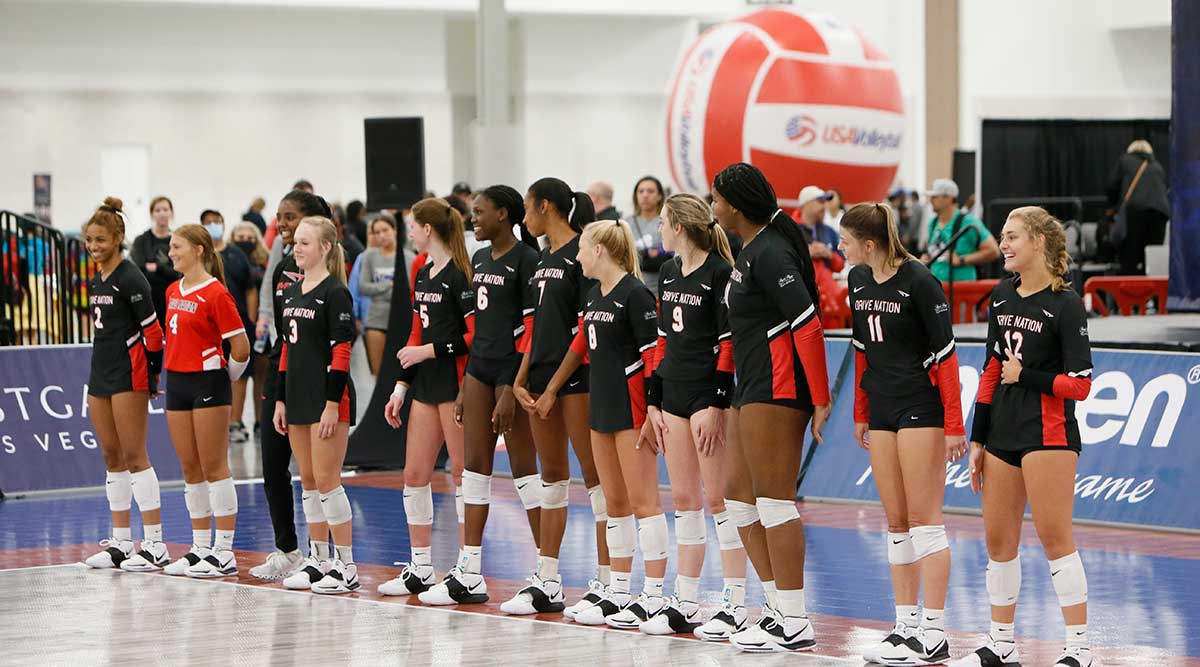
A recent survey to college athletes by the NCAA asked if the athletes had played club sports, high school sports, or both. More than 90% of women’s college volleyball players reported they played both. This means that club volleyball is an integral part of the recruiting process for college coaches, and that there is a strong connection between club volleyball and reaching the next level of competition. Let’s take a closer look at how to prepare for club season and some recruiting strategies to keep in mind.
Create a Target List and Research Programs
Some athletes prefer smaller schools, others can’t imagine leaving their home state. Regardless of the schools that are recruiting you, create a list of 25-50 schools you want to be recruited by. Location, academic majors, scholarship opportunities, division level and size of school/city are several categories you want to use when developing your target list.
Once you have your target list, start researching the school and the volleyball program. Check to see what academic majors are offered, read about the current players and coaches, and research the program’s current and past seasons to get an indication of the strength of their program. When you have completed some preliminary research, it’s time to reach out to coaches.
Contacting College Coaches
As we learned in the article, “When does recruiting begin for women’s, men’s, and beach volleyball recruits?” there are no restrictions for when a student-athlete can communicate with a college coach, at any level; however there are restrictions for coaches at some levels on when they can communicate directly with a student-athlete. You will want to take advantage of being able to reach out to college coaches, especially prior to your upcoming tournaments.
Sending an introductory email with your tournament schedule, your online profile, highlight video link and a personalized message on why you are interested in the coach’s program are a few topics to include to your target list of schools. For upperclassmen, following up with a phone call or asking about a campus visit after a club tournament is a great way to gauge where you are on the college coach’s recruiting list.
Focus on Your Game
While college coaches will evaluate your volleyball skills when watching you play a club volleyball tournament, they are also evaluating your communication skills and character. Watching how players interact with their coaches, teammates and parents before, during and after tournaments is important to college coaches because they want to recruit student-athletes who have positive attitudes, strong work ethics and a willingness to improve.
Also, be mindful about what you are sharing on social media at a tournament. Social media is more important than ever in the age of digital recruiting. Keeping profiles public and sharing appropriate posts could make or break the recruiting process for most student-athletes. Some college coaches will eliminate recruits off their list just by checking the student-athlete’s social media pages.
The Follow-up
Many student-athletes forget this important step: following up. Just like in the sales industry, the follow-up is one of the simplest ways to stand out. When reaching out to a college coach after a tournament, be sure to thank them if they came to watch you play and continue the conversation by asking a question at the end of your email.
Being proactive and following up with a coach can be your biggest advantage as a recruit; athletes who effectively communicate with coaches often give themselves a leg up in the process. If you’re equally matched talent-wise with another recruit, but you consistently speak with the coach and have a good rapport, you’re more likely to stay on their radar and potentially receive an offer.
Visit NCSA Sports for more information about college volleyball recruiting.
About the Author: Sue Webber is a former college volleyball player for the University of Illinois and former collegiate coach at the NAIA and Division I level. She is the event partnership director for USA Volleyball partner Next College Student Athlete, which helps guide athletes through the college recruiting process.
